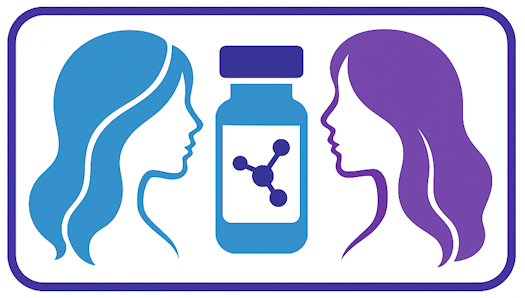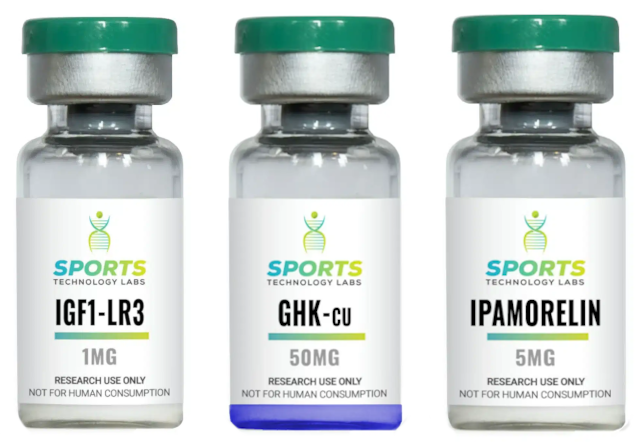In recent years, the best peptides for menopause have emerged as a promising option for managing a wide range of menopause symptoms, and they are considered peptide therapy safe. Peptides are gaining traction in medical science for their role in regulating hormone production, stimulating tissue repair, improving skin health, and alleviating menopausal symptoms. For many women, peptide therapy offers a powerful and targeted way to support the body’s natural systems during this transition.
While traditional hormone replacement therapy (HRT) remains a popular option, many women are turning to specific peptides as a more personalized menopause treatment that also aids in weight loss. These peptides are particularly beneficial because they support the body’s own hormonal balance mechanisms without directly introducing synthetic hormones into the system. For dual-action tissue repair and recovery benefits, see BPC-157 & TB-500 Guide.
This article explores five peptides that are widely used in peptide therapy for menopause: Gonadorelin, IGF1-LR3, GHK-Cu, PE-22, and Ipamorelin, highlighting their potential benefits. We’ll examine how each one supports hormone production, addresses menopausal symptoms like hot flashes and mood swings, and helps improve overall health and quality of life.
🌸 Big Picture Summary
- 💊 Discover the best peptides for menopause — a natural, science-backed alternative to hormone replacement therapy (HRT) that supports hormonal balance, skin health, and metabolic wellness.
- 🧬 Learn how advanced peptide therapy targets menopause symptoms like hot flashes, fatigue, and mood swings, while promoting collagen production and cellular repair.
- 🌿 Explore five top peptides used in women’s health: Gonadorelin, IGF-1 LR3, GHK-Cu, PE-22, and Ipamorelin — each with unique benefits for hormone regulation, tissue repair, and emotional balance.
- 💪 Understand how these compounds help increase energy, reduce inflammation, and preserve lean muscle as estrogen levels decline.
- ✨ See why thousands of women are choosing peptides over synthetic hormones for a smoother, more natural transition through menopause.
- 🧠 Backed by emerging clinical research, peptide therapy for menopause represents the next evolution in women’s longevity, vitality, and wellness optimization.
➡️ Looking To Buy Peptides? See Our Top Rated Source Here
Introducing the 5 Best Peptides for Menopause
Note: You can pick up the peptides mentioned on this page at Sports Technology Labs, here’s a link to their site: www.SportsTechnologyLabs.com
Instead of a one-size-fits-all approach, modern peptide therapy allows women to choose compounds that target specific symptoms of menopause. In this guide, we’ll highlight five of the most promising peptides that work through different biological pathways to support hormonal balance, tissue health, and overall vitality:
- IGF-1 LR3 – Promotes cell regeneration, supports bone strength, and preserves lean muscle.
- GHK-Cu – A copper-binding peptide known for boosting collagen, repairing tissue, and improving skin health.
- Ipamorelin – A gentle growth hormone secretagogue that improves energy, recovery, and skin elasticity.
- Gonadorelin – Helps stimulate the pituitary gland to encourage natural estrogen production.
- PE-22 – Supports mood regulation, emotional balance, and libido through pituitary signaling.
Each of these peptides offers unique benefits that go beyond conventional hormone replacement therapy, giving women more options to address hot flashes, fatigue, mood swings, and age-related tissue changes. In the sections ahead, we’ll break down exactly how each peptide works and what role it can play in supporting health during menopause.
1. IGF1-LR3: Enhancing Growth and Tissue Repair
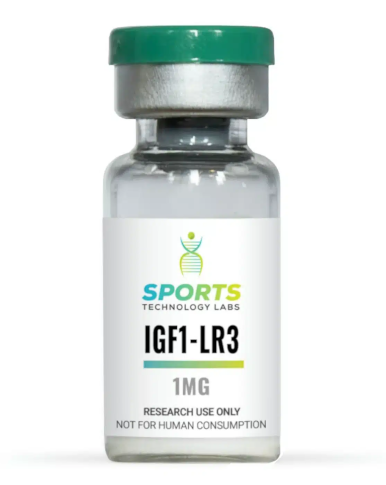
Note: You can pick up IGF-1 LR-3 from Sports Technology Labs, here’s a link to their site: www.SportsTechnologyLabs.com/product/igf1-lr3/
IGF1-LR3 is a modified form of Insulin-like Growth Factor-1, a compound that works downstream of growth hormone. It’s known for enhancing tissue repair, promoting collagen production, and improving bone density, all of which are crucial as hormone levels shift during menopause.
Key Benefits of IGF1-LR3, which consists of chains of amino acids, include :
- Improves skin health by stimulating collagen production.
- Preserves muscle mass and supports lean body composition.
- Supports bone health, helping prevent fractures and maintain bone density.
- Works in conjunction with growth hormone to support cell regeneration.
Because IGF1-LR3 functions through short chains of amino acids and hormone production pathways, it plays a key role in mitigating the menopausal symptoms tied to low growth hormone levels and tissue degeneration.
Related Article – Best Peptides For Female Muscle Growth
2. GHK-Cu: Collagen Boost and Anti-Aging Support
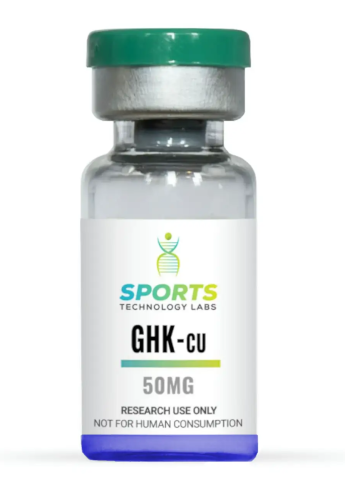
Note: You can pick up GHK-Cu from Sports Technology Labs, here’s a link to their site: www.SportsTechnologyLabs.com/product/ghk-cu-copper-peptide-50mg/
GHK-Cu is a naturally occurring peptide that consists of three amino acids (Glycine, Histidine, and Lysine), that are bound to a copper ion and may also support adrenal glands. For new GLP-1 combination research on dual agonists, see Tirzepatide with Glycine.
As one of the most effective peptides for skin health, it enhances wound healing and is vital in maintaining a youthful appearance.
GHK-Cu Benefits:
- Stimulates collagen production for firmer, more elastic skin.
- Supports tissue repair, especially in aging or sun-damaged skin.
- Reduces inflammation and promotes regenerative processes.
- Aids in hair growth and scalp health.
This peptide is often found in anti-aging skincare, but its internal regenerative properties make it a valuable part of peptide therapy for managing menopause symptoms that affect skin health, tissue repair, and overall vitality.
3. Ipamorelin: Boosting Growth Hormone Naturally
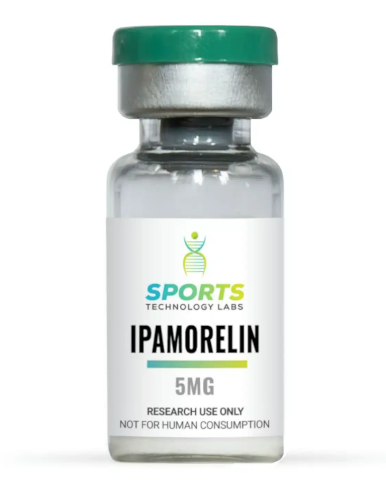
Note: You can pick up Ipamorelin from Sports Technology Labs, here’s a link to their site: www.SportsTechnologyLabs.com/product/ipamorelin-peptide/
Ipamorelin is a growth hormone secretagogue, meaning it stimulates the pituitary gland to release more growth hormone naturally. It helps address symptoms related to declining metabolic rate, energy levels, and muscle mass.
Why Ipamorelin Is Effective:
- Boosts energy levels and reduces menopause-related fatigue.
- Enhances tissue repair and recovery after physical activity.
- Stimulates collagen production for better skin health.
- Reduces mood swings by supporting overall hormonal equilibrium.
By promoting growth hormone release, Ipamorelin directly contributes to improving quality of life for women navigating the challenges of menopause.
4. Gonadorelin: Stimulating the Pituitary Gland Naturally
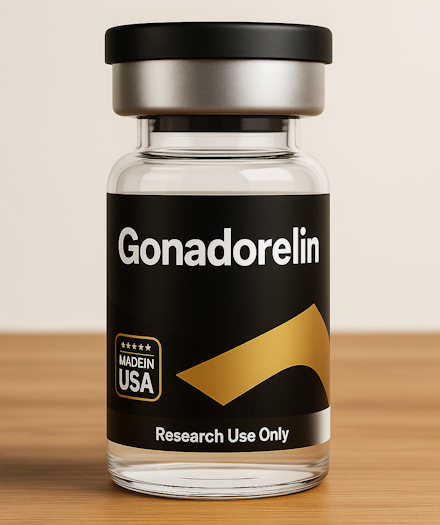
Gonadorelin is a synthetic version of gonadotropin-releasing hormone (GnRH). It works by stimulating the pituitary gland to release luteinizing hormone (LH) and follicle-stimulating hormone (FSH), both of which are critical for regulating hormone production in women.
How Gonadorelin Helps:
- Restores hormonal balance by encouraging the ovaries to continue producing estrogen.
- Reduces hot flashes, vaginal dryness, and mood swings.
- Supports the menstrual cycle during the perimenopausal phase.
- Delivered via subcutaneous injection, making it convenient and effective.
For women experiencing menopause symptoms, Gonadorelin can provide a powerful alternative to hormone replacement therapy by targeting the body’s internal hormone regulation system.
5. PE-22: Mood and Hormonal Regulation
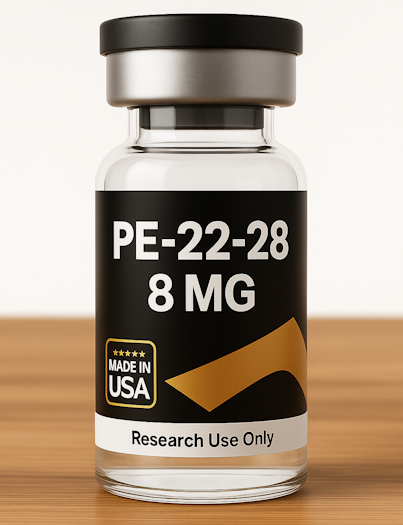
PE-22 is a newer peptide being studied for its ability to improve hormonal balance by stimulating gonadotropins from the pituitary gland. This helps support ovarian function and mood stability in menopausal women.
How PE-22 Helps Menopausal Women:
- Enhances hormone production and regulation.
- Improves emotional well-being by reducing mood swings.
- May increase libido and support natural estrogen synthesis.
PE-22 works best as part of a broader peptide therapy strategy, helping to target mood and libido, areas that are often overlooked in conventional hormone replacement protocols.
Frequently Asked Questions
Note: You can pick up peptides at Sports Technology Labs, here’s a link to their site: www.SportsTechnologyLabs.com
What peptide increases estrogen?
The peptide Gonadorelin is the most well-known for increasing estrogen production. It is a synthetic version of gonadotropin-releasing hormone (GnRH) and stimulates the pituitary gland to release luteinizing hormone (LH) and follicle-stimulating hormone (FSH). These two hormones, in turn, prompt the ovaries to produce more estrogen, making Gonadorelin especially useful in managing low estrogen levels during perimenopause or post menopause.
What are the best peptides for female fat loss?
The best peptides for female fat loss typically work by enhancing metabolism, growth hormone secretion, and preserving lean muscle mass. Top peptides include:
- CJC-1295 with DAC – Boosts growth hormone levels for improved fat metabolism and recovery. For detailed usage guidelines and synergy information, visit CJC-1295 Ipamorelin.
- Ipamorelin – A well-tolerated GHRP (Growth Hormone Releasing Peptide) that stimulates fat burning and muscle preservation.
- AOD 9604 – A fragment of human growth hormone designed specifically for fat loss without impacting blood sugar levels. Learn more about its GH-fragment research and dosage data at AOD-9604 Peptide.
- Tesamorelin – Another potent GHRH analog used for reducing visceral fat, especially around the abdomen.
When used responsibly under medical supervision, these peptides can support sustainable fat loss in women, especially during midlife hormonal shifts.
What is the best growth hormone releasing peptide?
The “best” growth hormone releasing peptide (GHRP) depends on individual goals, but the most commonly recommended for overall efficacy and safety is:
- Ipamorelin – It’s one of the most selective GHRPs, meaning it increases growth hormone without significantly raising cortisol or prolactin. It is known for its low side effect profile and is often combined with CJC-1295 for synergistic effect.
Other notable GHRPs:
- GHRP-2 – More potent than Ipamorelin but with a higher risk of side effects.
- GHRP-6 – Promotes GH release but increases appetite, which may not be ideal for fat loss.
Do collagen peptides help with menopause?
Yes, collagen peptides can be very helpful during menopause. Menopause leads to a decline in estrogen, which is closely tied to collagen production. Lower collagen levels result in:
- Thinner skin
- Wrinkles
- Joint pain
- Reduced bone density
Supplementing with collagen peptides can help:
- Improve skin elasticity and hydration
- Support joint health
- Enhance bone strength
- Reduce vaginal dryness and support tissue repair
While collagen peptides don’t directly affect hormone levels, they can greatly improve quality of life and counteract many of the physical symptoms of menopause.
Where to Buy Peptides For Menopause
For the best balance of price and quality, our top rated peptides source is none other than a company called Sports Technology Labs. A market leader for several years, Sports Technology Labs sells nearly every peptide listed above, often at prices significantly lower then the competition.
For example, while many companies sell IGF-1 LR-3 in the $150 – $170 range, Sports Technology Labs sells it for just $129.99. In addition, they offer significant savings for those buying larger quantities.
Use code MILITARY10 at checkout to receive 10% off your order, here’s a link to their site to learn more. Note: This discount is available to anyone, NOT just military.
Why Peptide Therapy for Menopause?
Peptides provide a targeted approach to managing hormonal changes, unlike blanket hormone replacement or hormone replacement therapy strategies. Many women prefer peptides because they can address various health issues, unlike blanket hormone replacement or hormone replacement therapy strategies :
- They stimulate the body’s natural hormone production.
- They support specific outcomes like better skin health, increased energy levels, and enhanced tissue repair.
- They are typically delivered via subcutaneous injection, making them efficient and well tolerated.
Together, these peptides offer a multi-faceted approach to menopause, addressing both physical and emotional symptoms including hot flashes, mood swings, and reduced collagen production. For an overview of peptide therapy pricing and accessibility, visit Peptide Therapy Cost.
Final Thoughts: A Personalized Path to Menopause Relief
Managing menopause symptoms doesn’t have to rely solely on synthetic hormone replacement therapy. The integration of peptide therapy into modern wellness practices offers a natural and effective way to address hormonal imbalances and enhance overall health, improving daily life. From boosting growth hormone to improving hormonal balance, the peptides discussed above deliver measurable support to many women navigating this transformative stage of life.
With the guidance of a healthcare provider, these specific peptides can be incorporated into personalized treatment plans that align with your unique physiology and health goals. Whether you’re dealing with hot flashes, vaginal dryness, or simply looking to optimize hormone levels, peptides may hold the key to a more comfortable, energized, and fulfilling chapter in a woman’s life.
Pick up the above peptides (and many more) at Sports Technology Labs, here’s a link to their site: www.SportsTechnologyLabs.com
